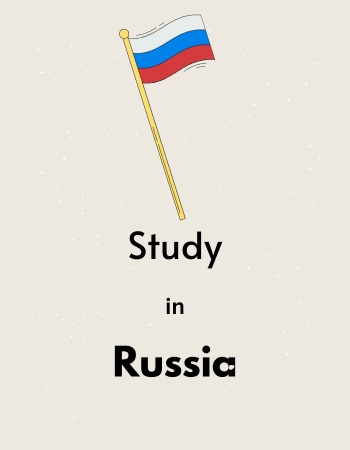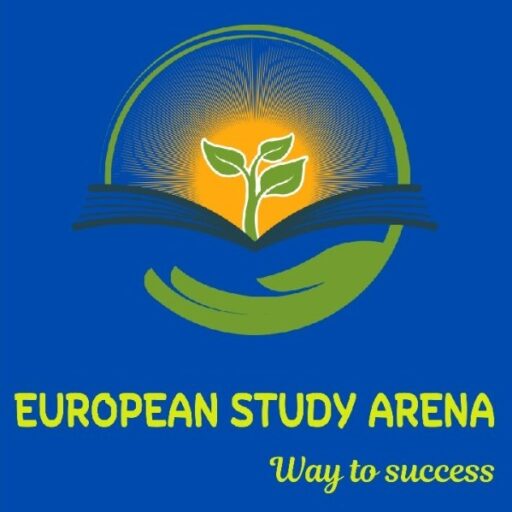Lorem ipsum dolor sit amet consectetur adipisicing elit. Officiis, aut.
- E-mail: magnus@wordpressriver.com
- Phone: +132-769-345-4537
- Study Abroad
- Russia


Study in Rassia
Overview
Time spent studying abroad will prove invaluable for students of Slavic languages. The benefits of a stay in St. Petersburg, Moscow, Prague, Cracow, or another East or Central European city are not strictly limited to increased language proficiency. Direct contact with the people and culture can be one of the most invigorating personal and intellectual experiences of a lifetime.
Participation in a summer or semester study abroad program is highly encouraged for all students of Slavic languages, particularly for Slavic concentrators. Although study abroad is neither required nor expected for the concentration, the faculty strongly promote study abroad because it has proven to be an extraordinarily enriching experience for so many students.
The number and variety of educational programs in the former Soviet Union and Central and East Europe have expanded dramatically in recent years. In order to receive credit for study abroad, students must participate in an approved program. Basic information about the long-established, high-quality programs is provided below.
Please note that in the aftermath of Russia’s full-scale invasion of Ukraine in February 2022, all of these approved programs have moved out of Russia. In some cases, the program as it was approved by the Office of International Education has changed significantly. Most programs have moved to other countries in the former Soviet Union where Russian continues to play a significant role in daily life, such as Kyrzgyzstan, Kazakhstan, Georgia, Armenia, and Estonia. These countries provide both an excellent environment for Russian immersion and exposure to their own rich cultural traditions. Slavic Department faculty and staff are carefully monitoring the situation with study abroad in Eastern Europe and the former Soviet Union, and are a good first resource for questions. Interested students are also encouraged to reach out to programs directly, as well as Harvard’s Office of International Education.
Preparation for Study Abroad
Although the Slavic languages pose many challenges for speakers of English, students who experience a rigorous university program of study can achieve a very high level of fluency and language proficiency by the time of graduation, especially if they participate in a well-timed summer or semester study abroad program. There is a great deal to be learned here in the classroom, however, and students are advised to discuss their future study abroad plans with Steven Clancy, the Director of the Slavic Language Program even as early as their first year of study. If the timing of your study abroad is maximally flexible, it is advised that students complete as much language study here as possible before going abroad. Ideally, students would have three years of college-level study before traveling to a Slavic-speaking country. If this is not feasible, students should at least complete two years of Slavic language study before going abroad in order to maximally benefit from their language study in a Slavic-speaking country.
Further Information and Funding Opportunities
More information about Study Abroad is also available at Harvard’s Office of International Education web site. In addition, study abroad advisers at the Office of International Education hold “study abroad drop-in hours” every weekday, between 2pm and 4pm. The Office of International Education is located at 1414 Massachusetts Avenue, 3rd floor.
For information about funding for study abroad, please review the “Summer Funding” page at the Office of Career Services web site. Financial aid is available for most if not all of these programs, and any financial aid you receive from Harvard may be applied toward a semester or academic year program. Consult the Office of International Education (OIE) for details: 496-2722.
In addition, selected Harvard grants can also be used to defray the costs of a study abroad program. For example, female students may apply for either the Isabel L. Briggs Travelling Fellowship or one of the Josephine Murray Travelling Fellowships. For more information on these and other available grants consult the current on-line Harvard College Guide to Grants.
Each year in late October or early November the Department conducts an informal informational meeting for students interested in Summer Language and Study Abroad programs together with representatives of programs in Russia and the Harvard Summer programs in Prague and Tbilisi. Questions concerning all aspects of off-campus study are entertained at this meeting. In addition, strategies for application to these programs are outlined by the Director of Undergraduate Studies (DUS), the Director of the Language Program, and former participants and leaders.
Study Abroad and Transfer Credits
tudents who spend a semester studying abroad should consult with the DUS to determine which courses abroad will count for which concentration credits. In general, most students who receive credit for two half-courses taken while abroad will be exempted from one semester of junior tutorial and one of their departmental electives, at the DUS’s discretion. Except in unusual circumstances, credit for the survey course will not be given for study abroad.
In general full semester concentration credit (i.e. 2 full courses) is granted to students who earn adequate grades during a semester of study in an approved program. Those who successfully complete a summer will receive half-semester concentration credit (i.e. 1 full course).
For other questions regarding credit, please see the Director of Undergraduate Studies. For questions regarding Study Abroad Programs, please see the Director of the Language Program and the Study Abroad Advisor for the Slavic Department.
Time Span: 3 to 4 years
Eligibility Requirements:
- 13 years of mandatory prior education
- Minimum 70 percent in SSC (depends upon the course)
- IELTS score – 6 to 6.5
Additional Information:
The Indian education system generally has a 12 year model.
Therefore, students might have to engage in a foundation course in the UK to be fully eligible to pursue a bachelor’s program.
Time Span: 2 to 3 years
Eligibility Requirements:
- Below 60 percent in SSC
- IELTS score – 5.5 to 6.0
Additional Information:
A student who is not able to fulfill the minimum requirements for the award of an Honors degree or Foundation Degree is eligible for the Diploma of Higher Education (DipHE).
Time Span: 2 to 3 years
Eligibility Requirements: Below 60 percent in SSC, and an IELTS score of 5.5 to 6.0
Additional Information: The Certificate is usually awarded after completing one year of full-time study at a UK university, or two years of part-time study. A CertHE is an independent tertiary award.
Time Span: 2 to 3 years
Eligibility Requirements: Below 60 percent in SSC, and an IELTS score of 5.5 to 6.0
Additional Information: A foundation degree is a combination of vocational and academic qualification.
Time Span: 2 to 3 years
Eligibility Requirements: Below 60 percent in SSC, and an IELTS score of 5.5 to 6.0
Additional Information:Higher National Diploma (HND), this is a part of Higher Nationals suite of qualifications, is an academic higher education qualification in the UK and various other countries. Higher National Diplomas are graded, usually based on a weighted average (with higher weight given to marks in the final year of the course, and often zero weight to those in the first year) of the marks gained in exams and other assessments.
Time Span: 4 years
Eligibility Requirements: Minimum 70% in SSC (varies with stream) IELTS minimum 6.0
Additional Information: Integrated course of Master’s and Bachelor’s
Time Span: 4 years
Eligibility Requirements: Minimum 70% in SSC (varies with stream) IELTS minimum 6.0
Additional Information: Integrated course of Master’s and Bachelor’s
Approved Programs (UNDER CONSTRUCTION)
The major study programs for which Harvard gives credit are listed below. Contact the program directly for up-to-date information about dates, fees, and deadlines. Information on other study and touring programs is also available from the Office of International Education.
- ACTR: (American Council of Teachers of Russian): Formerly one of the oldest and most established programs of study in Russia, ACTR offers a variety of specialized programs that cater to students’ individual interests. ACTR’s Russian Language and Area Studies Program (RLASP) combines intensive, immersion-based language instruction with a rich cultural program at sites in Almaty, Kazakhstan, Tbilisi, Georgia, and Yerevan, Armenia. Students can also study Ukrainian or Georgian with ACTR’s Eurasian Regional Language Program (ERLP) or Bosnian, Croatian, and Serbian with the Balkan Language Initiative (BLI). ACTR offers fall, spring, and summer programs.
- CIEE: (Council on International Educational Exchange) Formerly one of the oldest and most established programs of study conducted in St. Petersburg, Russia, CIEE has offers The Russian Language & European Studies program in Tallinn, Estonia. This programs combines classroom instruction in Russian language with a culturally immersive experience at Tallinn University, where students will learn about Estonian-Russian heritage communties, Baltic history, and more. CIEE offers fall and spring semester programs.
- AUCA-Bard Study Abroad Program: Russian Language Track: After the closure of the Bard Smolny program in St. Petersburg, Russia, Bard Abroad now offers a Russian Language Track through the American University of Central Asia-Bard Study Abroad program in Bishkek, Kyrgyzstan. Students use Russian in the classroom, during homestays, and in day-to-day life while learning about the culture and history of Kyrgyzstan and Central Asia. AUCA-Bard Study Abroad offers fall, spring, and summer programs.
- Middlebury Schools Abroad: Long one of the best-regarded programs of study in Russia, Middlebury Schools Abroad has moved their Russian language program to Astana, Kazakhstan. This programs combines Russian language courses and Middlebury-organized electives at Nazarbayev University with immersion in the vibrant cultural life of Astana. Middlebury offers fall and spring semester programs.
Summer Language Study in the U.S.
Some concentrators opt to supplement their language instruction at Harvard with specialized training during the summer in the United States. Aside from standard summer school courses, some colleges and universities offer immersion programs. Students in these programs are required not only to take intensive courses, but also to speak Russian outside of class: at meals, in the dorms, on campus. Though no additional credit is offered to participants in immersion programs, many students find that the rewards are worth the extra effort and commitment.
Credit for summer school in the U.S. is offered according to the same guidelines as those for study abroad. The student must be enrolled in an approved program and, upon successful completion, will receive half-semester concentration credit (i.e. 1 full course). Again, any student who wishes to receive credit for work completed during the summer must have the approval of OIP and the Director of Undergraduate Studies BEFORE participation in any program.
HOW DO STUDENTS WORKING IN THE UK EXERCISE THEIR EMPLOYMENT RIGHTS?
If you want to study abroad in UK, you should be aware of the following rights:
Based on Education Ireland’s official portal, almost every international student issued with a valid immigration stamp 2 is allowed to work 40 hours/week in Ireland. Although only between June to September and from December 15 to January 15 (holidays). For the rest of the year, international students with a valid work document can only work 20 hours/week (college days). All in all, every student studying abroad is permitted to work till the expiration of the immigration permission stamp 2.
What Type Of Jobs Can International Students Do?
| 01. | 02. | 03. | 04. | 05. |
|---|---|---|---|---|
| It is mandatory for you to receive the National Minimum Wage. | You are required to receive the money even if you have been offered a full-time position by the same company in the future. | As an employee of the company, you are entitled to equal pay, sick leave, maternity leave, paternity leave, and other holidays. | There is a requirement for you to attend training events and career breaks. | There will be a pro-rata distribution of monetary benefits. For example: When a full-time employee receives a bonus of 1000 pounds, part-time employees must receive a bonus of 500 pounds. |
| Unlike full-time employees, you are not required to work overtime. | As a part-time employee, it is possible to justify not having health insurance. | A student intern may not be eligible for unpaid internships or school work experience placements (under the age of 16). | Interns may not receive compensation if they are required to shadow another employee. | Mistreatment can be reported to the Employee Tribunal. |
Work Opportunities in Australia
Many countries, including Australia, allow international students to work while enrolled in full-time government-recognized courses. When you study abroad in Australia, you should not expect to live entirely on your income, however, the extra income you earn will help you meet your financial commitments. Nevertheless, if you are studying abroad as well as working at the same time, you must follow some country regulations and rules. International students who want to study in Australia are required to meet the following criteria:
1. College students are permitted to work up
to 20 hours per week while attending classes.
2. While the classes schedule
is off during holidays or vacations, working up to 40 hours per week is
acceptable.
3. In Australia, students are allowed to enter 90 days before the
start of classes. Work is only permitted once your course starts.
4. Upon
beginning your course, your family members or spouse can work for up to 20
hours per week. It is possible to work up to 20 hours at a time.
5. Upon
receiving a letter of acceptance, you may apply for an Australian student
visa to study abroad in Australia.
6. Students must adhere to the
requirements of the programs they are enrolled in on a regular basis.
7. According to the requirements of the program, students must maintain
regular attendance.
8. The Overseas Student Health Coverage (OSHC) is
mandatory for all overseas students.
Note: Volunteering at charitable
organizations and nonprofit organizations is also encouraged as a
wonderful way to meet new people, gain practical experience, and be a
valuable member of the community.
People Also Ask
During your semester period, you may work up to 20 hours per week and during the break, you may work full-time.
Yes, there is a tuition fee of CAD 100000 for 12 months and a monthly fee of CAD 833. A student in Quebec, Canada, may be charged a different amount depending on their age.
In order to demonstrate proficiency in the English language, Canadian universities accept the IELTS, TOEFL, and CAE Advanced tests. Before sitting for an exam, ensure that you have checked your study abroad application.
Yes, it is possible for your Canadian student visa to be rejected due to fraudulent documents. Additionally, your application for a student visa may be denied if there are insufficient funds available.
For your study permit in Canada, you will need the following documents:
- A valid passport
- Acceptance letter from the university
- Proof of financial assistance to support your education
- A visa form
- Payment of visa application fee
- Payment of biometric fees
